Why is Rezwan a nominee?
Mohammed Rezwan has been nominated for his 25-year campaign for children’s right, and particularly girls’ right to go to school, despite �looding and increased poverty due to climate change.
THE CHALLENGE
Every year, thousands of schools and school routes are destroyed as a result of flooding in Bangladesh, which is being made worse by climate change. The education of millions of children is affected, and many never go back to school. Instead they are forced to work, and girls are often married off.
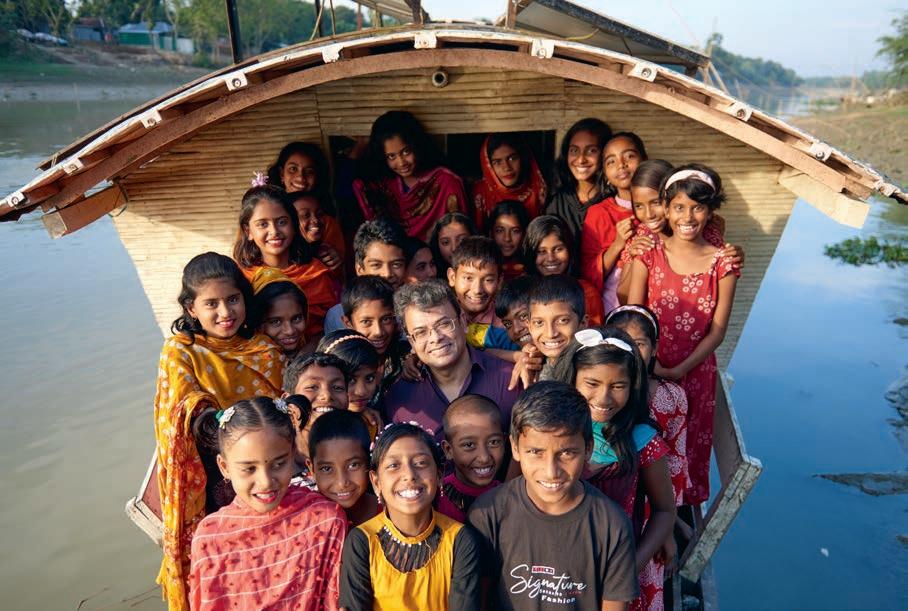
THE WORK
Rezwan and his organization Shidhulai Swanirvar Sangstha (SSS) run 26 floating schools on the rivers. The boat schools fetch the children where they live, so they can go to school even if the roads are under water. SSS also has floating libraries and health clinics, and offers vocational training on boat schools for young women. Every village with a boat school also has a Young Women’s Rights Association that fights for girls’ rights and campaigns against child marriage.
RESULTS & VISION
Since 1998, some 22,000 children have received an education through the boat schools. The floating libraries and health clinics reach 150,000 villagers every year. 15,000 young women receive vocational training to give them a better future. The practice of child marriage is declining where the boat schools visit. Rezwan wants to start up more boat schools. His idea of floating schools has spread throughout Bangladesh and to eight other countries.
Nominated Child Rights Hero


Mohammed Rezwan
“We’ve always had flooding here in Bangladesh, but it’s much worse now. Thousands of schools are destroyed by flooding every year”, says Mohammed Rezwan, who fights for the right of all children to go to school in a country plagued by natural disasters.
Bangladesh is one of the countries most severely affected by climate change. Children suffer most of all. Almost 20 million children in Bangladesh are affected by the consequences of extreme heat, drought, cyclones and flooding.
The heavy rains came every year during the monsoon season in the village of Shidhulai when Rezwan was growing up. Everything was flooded. Fields, homes and roads. Houses made of mud, straw and bamboo were dragged along by the floodwater, and people lost
RIGHTS! OUR
everything they owned. Many died. Schools were destroyed and closed. And because the roads were left deep under water, you couldn’t walk or cycle to those schools that remained open. Many children were left without any kind of education.
“That’s what it was like for
many of my friends, but it was a bit different for me.”


Rezwan’s dad worked in the capital Dhaka, so the rest of the family lived with grandmother and grandfather in the village. Grandfather was a high school teacher who owned his own land and grew crops, and the house was







CHANGE FOR THE RIGHTS OF THE CHILD








As a changemaker, Rezwan helps ful�il children’s rights and achieve the following Global Goals: Goal 4: Quality education. Goal 5: Gender equality. Goal 7: Affordable and clean energy. Goal 13: Climate action.

52
52–67
Safe for the girls
“In Bangladesh, girls can be the victims of assault by male teachers, or on their way to and from school. It means that many families decide not to let their daughters go to school. We do everything we can to make sure families feel safe. Almost all our teachers are women, who are popular and live in the village where they teach. The boats pick up and drop off the students where they live, and are piloted by skippers who also come from the village,” explains Rezwan.

sturdy and built of brick with a tin roof.
“We also had a boat that we used to transport our rice and other crops we grew. So when the roads flooded, I could get to school by boat. I was lucky, but it didn’t feel good because many of my friends didn’t have the same opportunity.”


Unfair
School was really important to Rezwan’s grandfather, who encouraged him to study hard.
“I loved school, I got good grades and scholarships, which meant I could afford to continue on to university in





Rezwan’s 54 boats

• 26 schools
• 10 libraries

• 6 training schools
• 6 health clinics
• 4 transport boats
• 2 playgrounds
the capital Dhaka, where I trained to be an architect.”
Every time Rezwan visited Shidhulai he met friends of his who had been forced to quit school because of the constant flooding. He saw how hard life was for them. There were no jobs, no health care and the situation for schools was still bad in the area. Everything was just a huge struggle for survival.
“It felt unfair, and I wanted to help in some way. As an architect, I wanted to build schools, libraries and hospitals and help create jobs in the villages so life would be better,” explains Rezwan.

Rezwan not alone


Floating schools
But he realised that it was no use building normal schools, because they’d only be destroyed in the next flood.


“At its worst, two-thirds of Bangladesh ended up under water, so I came to the conclusion that the schools had to be able to float so as not to be destroyed. And if the schools were built as boats, then school could come to the children when they couldn’t make their own way to school because the roads were under water.”
In 1998, using an old computer and $500 that Rezwan had left over from a scholarship, he started the organiza-
The organization Shidhulai Swanirvar Sangstha has 213 employees and 315 volunteers. The boat school has 78 teachers and 58 skippers and boatmen.
53
Each boat school takes three classes with 30 students every day. The classes are taught in three-hour sessions.
c TEXT:
ANDREAS LÖNN PHOTOS: JOHAN BJERKE
Family’s honour
“If a girl is the victim of a sexual assault, it’s often the girl that gets the blame in the end. The family’s honour has been ruined, and gossip means that no-one wants to marry either the girl or her sisters. One of the reasons for child marriage is to avoid the family’s honour being at risk. It’s a dreadful situation,” says Rezwan.

tion Shidhulai Swanirvar Sangstha (Shidhulai selfreliant) to make his vision of floating schools a reality.
First boat school
“I sat up late at night searching for organizations in Bangladesh and abroad that could support me financially. I sent hundreds of emails! Meanwhile, I worked with a team of volunteers collecting scrap for recycling, which we sold to factories to raise money.
“In the end, all our efforts produced results. The money started coming in.” Rezwan took on two employees, and in 2002 he was able to design and build the first boat school.

“We used materials and skilled boat builders from the villages. People were proud!”
In addition to the boat builders getting work and the children an education, Rezwan also employed both teachers and skippers from the village.

“It became everyone’s school, not just mine!” says Rezwan, laughing.
Girls’ rights
Rezwan managed to raise more money, so the number of boat schools and students increased every year. And to enable as many children as possible to go to school, the education was completely free, including the school books. Children that would previously never have gone to school were now jumping aboard one of Rezwan’s schools when they arrived at their village.
“Every child has the right to go to school. But here it’s perhaps most important of all for the girls. One in five girls is married off by the age of 15. The best way to stop child marriage is to make sure these girls get to go to school for as long as possible,” explains Rezwan.
“My mother was married at the age of 13. She had me at
54
Floating library with internet
Rezwan’s ten floating libraries make three stops a day, and every village is visited three times a week. The libraries also have computers that run on solar energy.
“You have to know how computers work to have a good future, and we can help with that here. It’s most important of all for girls and young women to learn how to use computers and the internet. If they continue their education and gain new skills, it almost always raises the age at which they marry,” explains Rezwan.
Rezwan’s library contains books about girls’ rights and about nature, the environment and climate change.
15. She gave up her own childhood, her own rights, to look after me and my brothers. So the fight for equal rights for girls and boys is something that is very personal to me! We’ve always spent a lot of time explaining to everyone in the villages that girls and boys share the same rights, and that both must be respected and allowed to go to school.”
Rezwan’s 26 schools
Today, 20 years after the first school was launched, 2,340 students attend 26 school boats on the rivers of northwest Bangladesh. And in addition to the floating schools, Rezwan’s organiza-
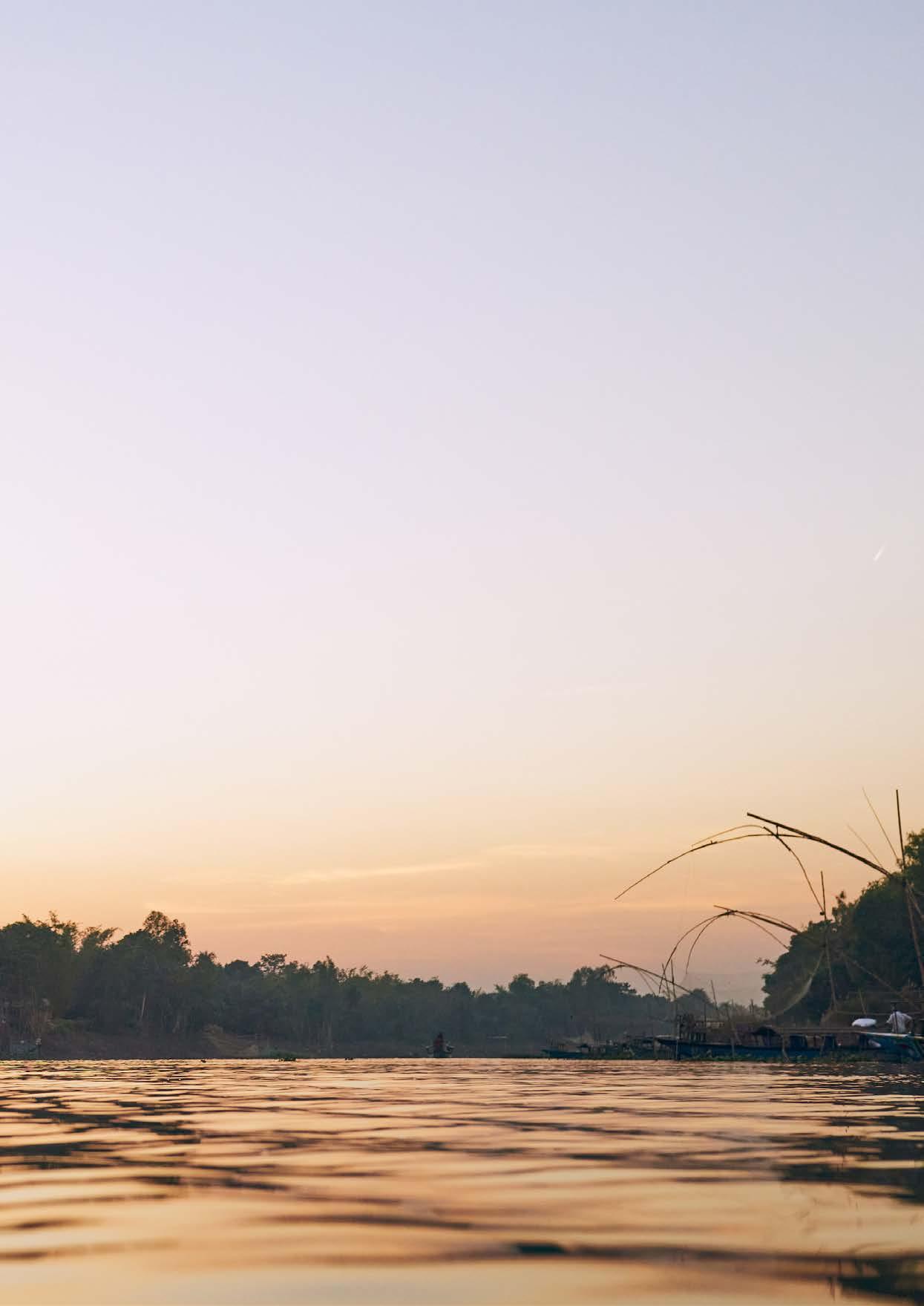
tion also has floating libraries and health clinics that reach 150,000 villagers every year. Over 22,000 children have been educated on the boat schools, and Rezwan’s floating schools idea has spread to other organizations across Bangladesh. It’s also spread to India, Pakistan, Vietnam,


Young Women’s Rights Associations
There are Young Women’s Rights Associations in all the villages that are visited by the boat schools.
“We support one another, share information in the villages and try to prevent child marriage and pregnancies at a young age,” says Maria, 19, in a redblue headscarf, on a mission together with her friends from the association.

55
Long queue for the doctor on one of the organization’s six floating health clinics.
Cambodia, the Philippines, Indonesia, Nigeria and Zambia.
“I’m delighted! And if you consider the effects of global warming, even more floating schools are going to be needed around the world,” says Rezwan.

Dangerous work
But not everyone is a fan of Rezwan’s work.
“There are those who don’t like the idea of poor children getting a good education, because it means that as adults they’ll start demanding their rights. Then it won’t be possible anymore to exploit them as cheap labour and steal their money. So my
colleagues and I have many enemies. We are reported to the police on false grounds, and our offices and homes get searched. I’ve been the victim of two murder attempts and I rarely sleep more than one night in the same place.
“I don’t own many things or have much money. But every time I see all the children at the boat schools learning important things, which will allow them to fulfi l their dreams and have a good life, I feel lucky and rich!” c
Climate and children’s rights



“Climate change is leading to the violation of many of the rights of the child in Bangladesh. Here’s my list of violations,” says Rezwan:





• Children are not getting an education because their schools are being destroyed and closed.
• Children’s families are getting poorer, which means less food, no health care and child marriage is increasing.
• Children are being forced to leave their homes.
• Children are losing their homes and families.
• Children are getting sick.
• Children are dying.
Constantly working
Rezwan is in regular contact with his schools out on the rivers. Do they have everything they need? Enough teachers? Skippers? Books?
Bangladesh disappearing

Bangladesh has always had flooding during the rainy season, but climate change is making the situation much worse. Higher temperatures are melting the glaciers in the Himalayas, increasing the amount of water in the rivers that flow through Bangladesh. The river channels cannot cope with all the water when the monsoon rain arrives, and they over-
flow and land disappears. Meanwhile, global warming is causing sea levels to rise, leaving Bangladesh’s coastal areas under water.
The rain and floods are more severe, unpredictable, come more often and last longer. It’s hard for people to sow crops and harvest them.
Despite Bangladesh being responsible for less than a thousandth of the world’s












greenhouse gas emissions, it is one of the countries that is affected the worst by global warming.

Researchers on the UN Climate Panel estimate that almost a fifth of Bangladesh will completely disappear under water by 2050, and that 20 million of the country’s inhabitants will become climate refugees.
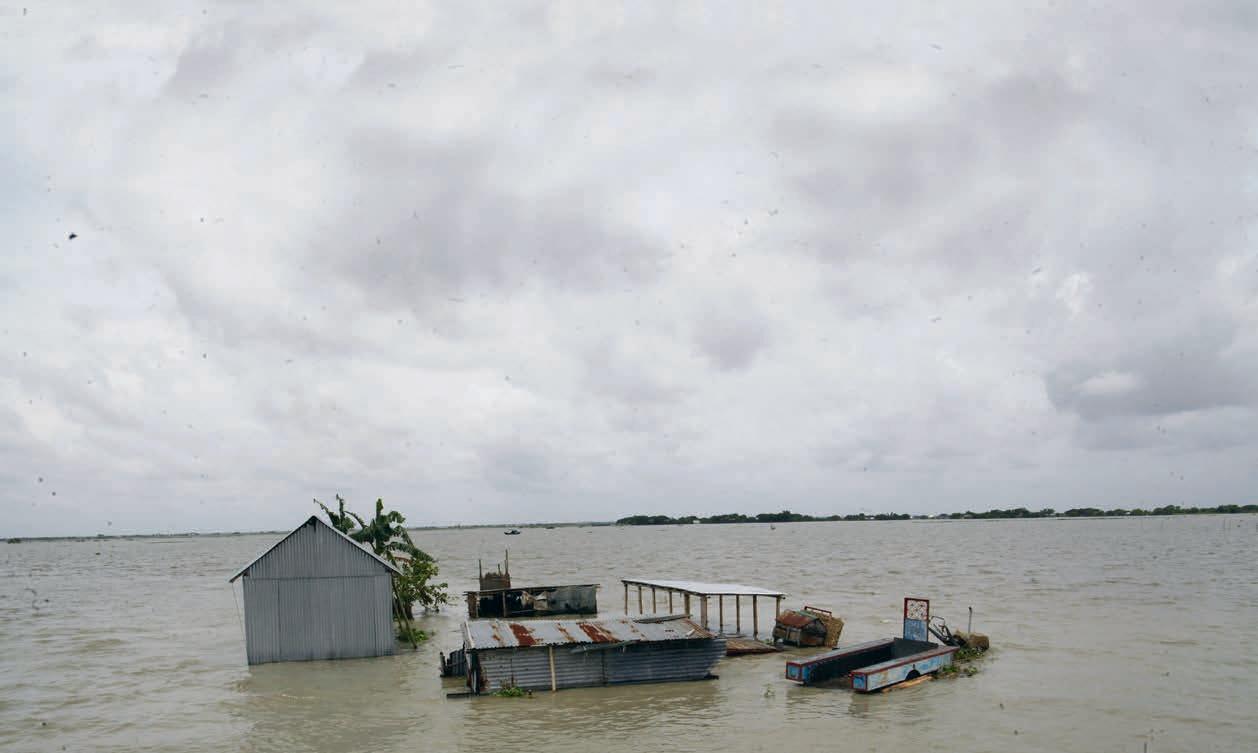
3 million homeless
The flooding in Bangladesh in 2022:

• Impacted the lives of almost 11 million people.
• Caused the deaths of 145 people.




• Made 3 million people homeless.
• Destroyed 6,676 schools.
• Affected the education of 1.5 million children.
56 XINHUA/TT
Fights for girls’ rights
“My big sister was forced to quit school and get married at the age of 14, and she’s already a mother, so I know how important it is to fight for girls’ rights,” says Chobi, 13, who is a member of the Young Women’s Rights Association.
I think the same thing was planned for me, but mum and dad changed their minds after the boat school and Young Women’s
Rights Association started informing people about the problems with child marriage. But I feel sorry for my sister, who didn’t get the same
Life for girls in Bangladesh


• More than half of all girls, that’s 38 million, are married off before the age of 18, and one in five, 13 million, before the age of 15.
• 5 of 10 girls who are married off at a young age have given birth to their first child before the age of 18.
• Girls who are married off are subjected to a lot of violence, including sexual violence. But a majority of the population do not regard child marriage as sexual violence towards girls.
• More than twice as many girls as boys quit school in years 6 and 7 (aged 12–14).
• It is four times more common for a married girl not to go to school than an unmarried girl.
• Five million women and girls have died as a result of discrimination, in the form of less food, medical treatment and care than boys, as well as from abortions of female fetuses.
opportunities as me. It’s to protect other girls from ending up in the same situation as her that I’m a member of the association.
“We meet about three times a month and learn about girls’ rights. And we support and protect one another. Being part of the group means we feel stronger together. We dare to say what we think. It’s really important, because we talk to our families, neighbours, children and young people, older people…in fact everyone in the local villages!”
More starting to understand
“We tell people that child marriage is prohibited, and that all girls must go to school instead, just like boys. We
There are 15 girls aged between 13 and 19 in Chobi’s association. She and some of the others still go to boat school, while others have started high school or go to Rezwan’s training school. The Young Women’s Rights Association helps them stay in contact and continue supporting one another. An adult woman from the boat school leads the meetings. There are Young Women’s Rights Associations in all the villages visited by the boat schools.
Chobi’s important checklist for girls
According to Chobi, it’s important for a girl to go to school because:
• She learns important things.
• She makes friends.
• She gets to play and enjoy free time.
• She can get a job and have a better future.
also explain that a young girl isn’t ready to have children at an early age, because she’s still a child herself. That there’s a high risk that both mother and baby will die.
“I actually think they’re listening to us, because child marriage is nowhere near as common here anymore. My family treats me well, and it’s the same for most girls in this region now. More people are starting to understand that boys and girls have the same rights.
“My dream for the future is to own my own land and grow food on it. I’d also like to keep some goats and ducks, and live a peaceful life. I’d be happy with that.” c
57
‘‘
c TEXT: ANDREAS LÖNN PHOTOS: JOHAN BJERKE
Boat school saved Rakhiya
“My life would have turned out very differently if it hadn’t been for Rezwan’s boat school. I would have been married off and forced to quit school to look after the home. My future would have been ruined,” says Rakhiya, 11, who is in fifth grade and dreams of becoming a doctor in the village.
Nearly one in five girls in Bangladesh are forced into child marriage before the age of 15, many due to poverty that is being made worse by climate change. Rakhiya was almost one of them …


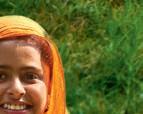





It happened last year. I’d just got off the school boat and walked up from the river to our house. Just as I was going through the door I heard mum and dad talking about me. I stopped to listen, trying to be as quiet as possible. At first I thought I was hearing things. Could it be true? They were talking about a wedding. My wedding? Yes, they said my wedding. My heart started beating fast. Everything was spinning. I just didn’t get it. My parents were sitting there, planning to marry me off...
“At first I didn’t know what
Teacher against child marriage!
Rakhiya’s teacher, Rowsonapa, is a role model for many of the children who live by the river.
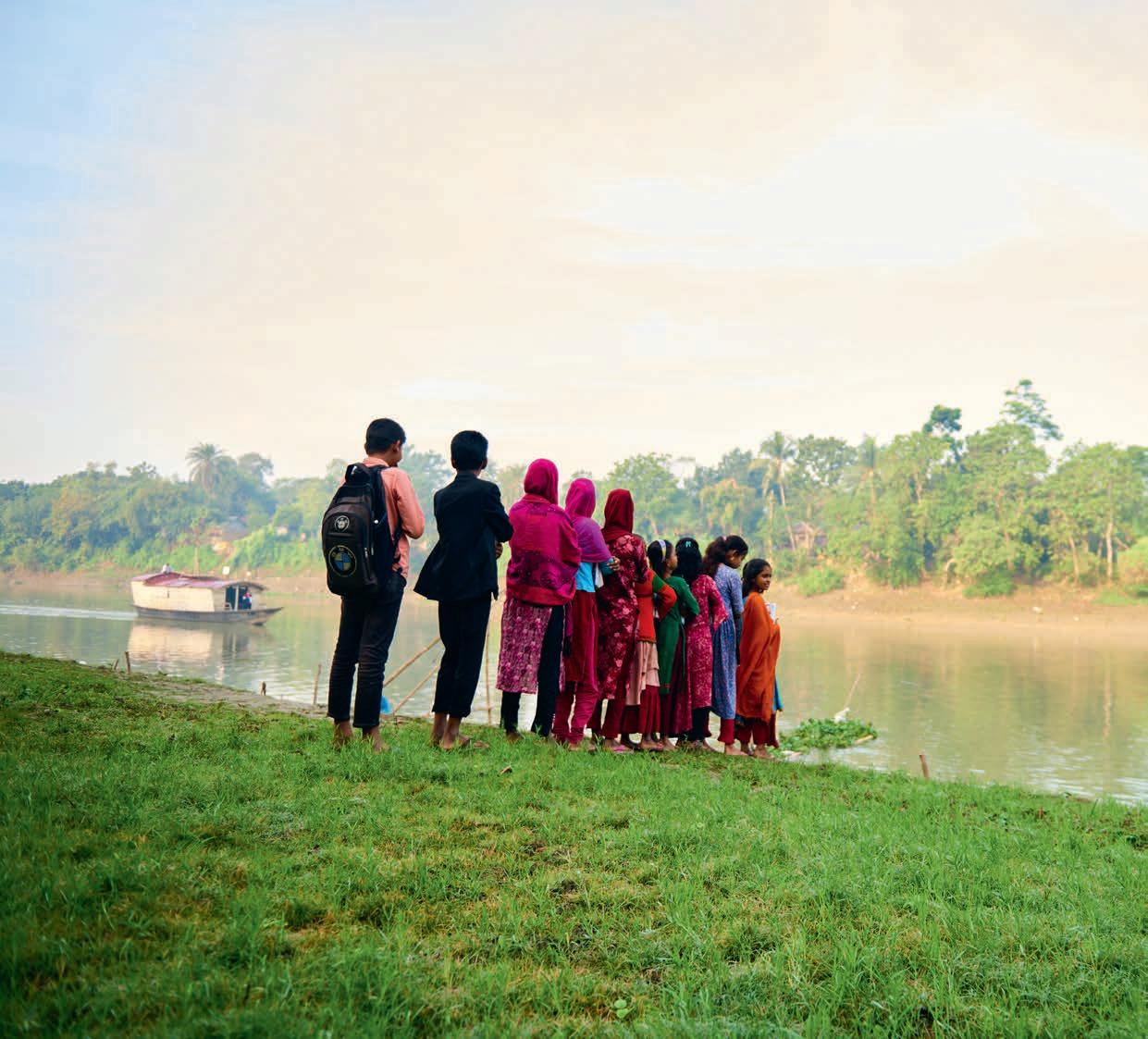
“I feel like I can tell her anything,” says Rakhiya.

to do, but eventually I decided to go in. They stopped talking the minute I went through the door. I pretended as though I hadn’t heard a thing, and they pretended that everything was normal. I didn’t show how I felt, but I was so disap-


pointed in mum and dad. And angry.”
Teacher saved me


“At boat school, we’ve learned that child marriage is banned. That it’s against our rights. My teacher often talks about












58
‘‘
every child’s right to go to school, both girls and boys. But that could be all over for me now. I didn’t say anything to mum and dad that evening, but the next day I went straight to my teacher as soon as I got to school and told her. She was very worried and came home with me after school along with some people from the boat school’s Young Women’s Rights Association that she’d asked to come too. They explained to mum and dad that child marriage is wrong and illegal, and asked them not to marry
Floating school arrives
It’s almost 8 o’clock in the morning, and Rakhiya is waiting for the school boat along with some of her classmates. The boat does two more stops to pick up the rest of the class before teaching starts.



“We don’t have any uniforms at my school, and I think that’s good because some families can’t afford that,” says Rakhiya.


Married off at 13








“I’m so pleased we reconsidered and didn’t marry Rakhiya off. As for me, I was 13 when I was forced to marry. I managed to finish fifth grade, but when I was married off I never had the chance to go to school again. I wish for a better and simpler life for my daughter than I had,” says Rakhiya’s mum, Saleha.



me off. They said I had to finish school, play and be a child, not get married.

“I was worried and nervous, but the meeting actually ended with my parents promising not to marry me off. It’s hard to explain the relief I felt. But I still found it difficult to understand it all. Everything happened so quickly. I just


didn’t get why mum and dad had been prepared to do that to me.”








River took everything

“A few years ago, we lived near the river in a little house


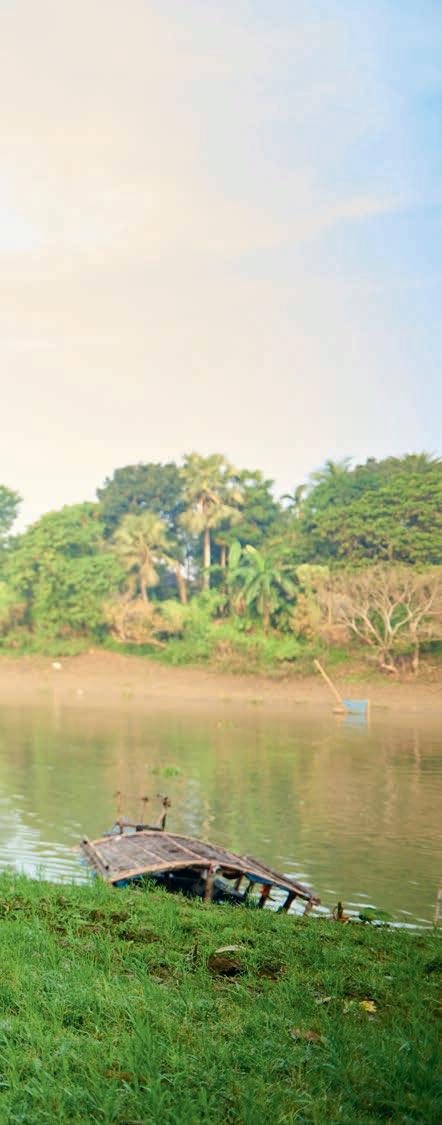

with walls made of reeds and bamboo. It was the monsoon, so the rain was pouring down


“I do my own henna patterns. I love drawing, and I draw in my notebooks too!”





59
Boat School Shidhulai Swanirvar Sangstha
c TEXT: ANDREAS LÖNN
PHOTOS: JOHAN BJERKE
RAKHIYA, 11

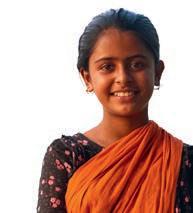
LIVES: By the Gumani River.

LOVES: Honesty.
HATES: Lies.
BEST THING THAT’S HAPPENED
TO ME: My teacher saving me from being married off.

WORST THING THAT’S HAPPENED TO ME: My parents planning to marry me off.
WANTS TO BE: Doctor.
LOOKS UP TO: Rezwan. I want to be like him!
and the water in the river was constantly rising and getting closer to the house. It was late one evening, but no-one in the family dared go to sleep.
“First, a little water came in under the reed walls and at the door, but suddenly the water rushed in through every crack in the house. Finally it came right through the walls. My brothers and I



Banana tree raft


Solar power for homework


“All the students at boat school get a solar energy lamp so we have good light to do our homework by. We’ve also been given a solar panel for our roof so we can charge the lamp. I stop studying after the last call to prayer of the evening, at around 7.30 pm. The call to prayer from the mosque is like my clock,” says Rakhiya.

held on to mum and dad as hard as we could, while the water got deeper and deeper. Before long, mum had to lift me as high as she could, because the water had got so deep in the house.
“When we made it out through the door it was like stepping right into the river. We screamed when we hit the water, and thought we were
“When the waters rise in the river and flooding is on its way, mum and dad build a platform out of bamboo high above the water and we move there. We cook and sleep there. The water underneath the platform is often full of snakes. We also make rafts out of banana trees to get around. You have to know how to swim and treat snake bites here, otherwise you won’t survive,” says Rakhiya.

going to die. But somehow we managed to get to land. From there we watched as the walls and roof of our house were ripped off and dragged down into the river. The entire house disappeared.”
No land of our own
“We spent the whole of that night outside. The rain carried on pouring down, and
there was water everywhere. I don’t remember much after that, I don’t know why. But mum has told me that I just cried and screamed. One moment I was in mum’s lap, and the next in dad’s.
Sometimes I fell asleep from exhaustion, but then I woke again and screamed out loud. I had nightmares for ages, and would wake in the middle



Vital snake knowledge


“At boat school we learn what to do if someone gets bitten by a cobra or other snakes. First you tie a rag or band hard above the bite so the poison doesn’t spread to the rest of the body. Then you have to get to the clinic or hospital as quickly as possible. Snake bites are more common during flooding. Snakes get into the houses then to seek shelter from the water. My uncle was bitten by a dangerous snake, but luckily he survived,” explains Rakhiya.

60
ADI SHAA/AFP/TT RAGNA JORMING
of the night crying and calling for mum and dad.
We stayed with relatives until dad had built the house we live in now. But it was really hard after the flood. We have no land and we lost what little we had when the old house disappeared. The neighbours’ fields and plantations where mum used to work were also destroyed. So
The �loating clinic
“Although my dream is to start my own hospital when I grow up, I’d also like to work as a doctor at the floating clinic,” says Rakhiya.
Here, boat school student Sumaya, 11, and her 4-year-old sister Choya are having their tonsils examined by Doctor Khalilur on one of Rezwan’s floating clinics. There are six floating clinics that visit patients in the villages along the rivers where the boat schools are, and this clinic passes Sumaya’s village every other week.

she had no way to work and earn money.
“Mum has explained that they were thinking of marrying me off so they’d have one less person in the family that needed food and other things that cost money. They felt they had no choice, because everyone was always hungry. She said it was an idea that was very painful. And that it
was a mistake. Now I know she’s happy when I take the school boat every morning, and in some way I’ve forgiven my parents.”




Floating school
“We get floods here every year during the monsoon. It’s always been that way, but things have got a lot worse. We get more rain, and severe
Caught you!
“I have fun with my friends. We meet every day after school and go bathing and play,” says Rakhiya.


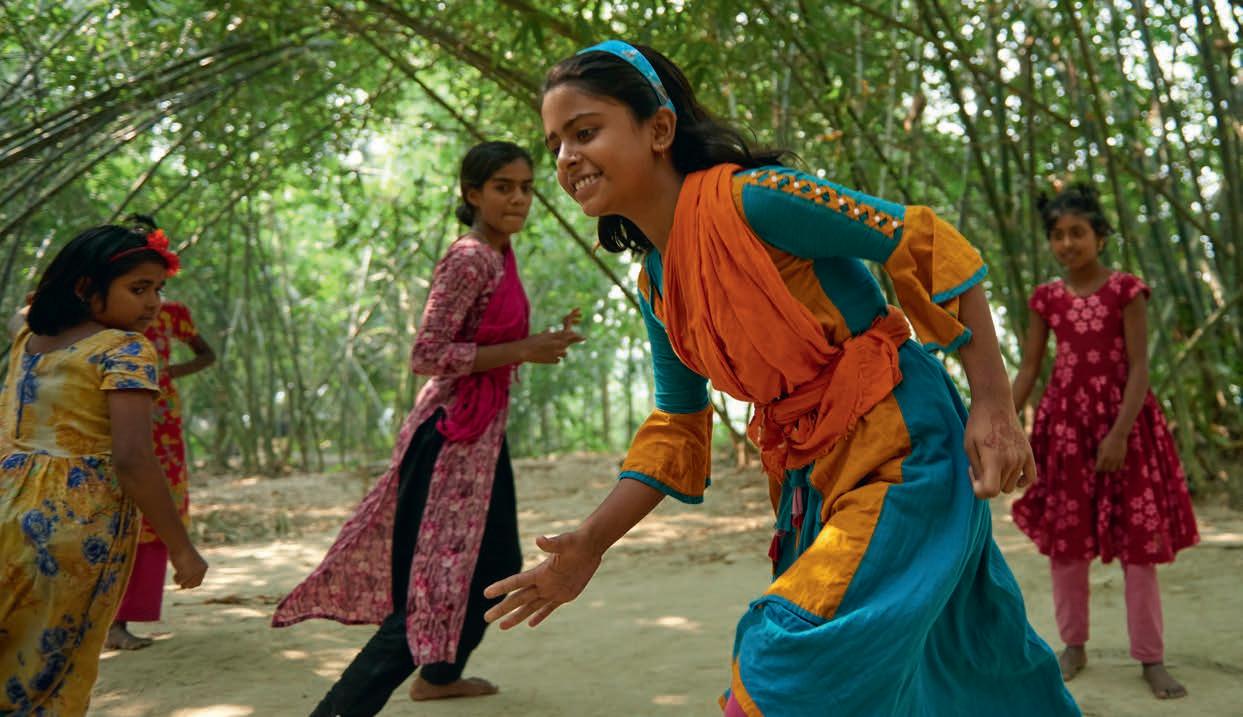
61
drought. The flooding comes when we don’t expect it, and it lasts for longer. I can see it happening with my own eyes, but we learn a lot about global warming and climate change at boat school as well.”





Many children have to quit school in Bangladesh because the schools are destroyed by the flooding. And the paths and roads to the schools are

also destroyed, or end up under water, so no-one can get to school anyway.


“But it never affects us. Our school is on a boat that always floats on the water, no matter how high the river rises. We can carry on going to school during the monsoon, because we get picked up from home in the village by the boat in the morning, and then we’re















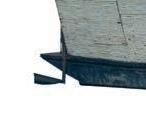


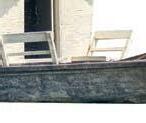
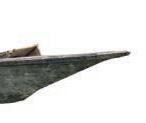
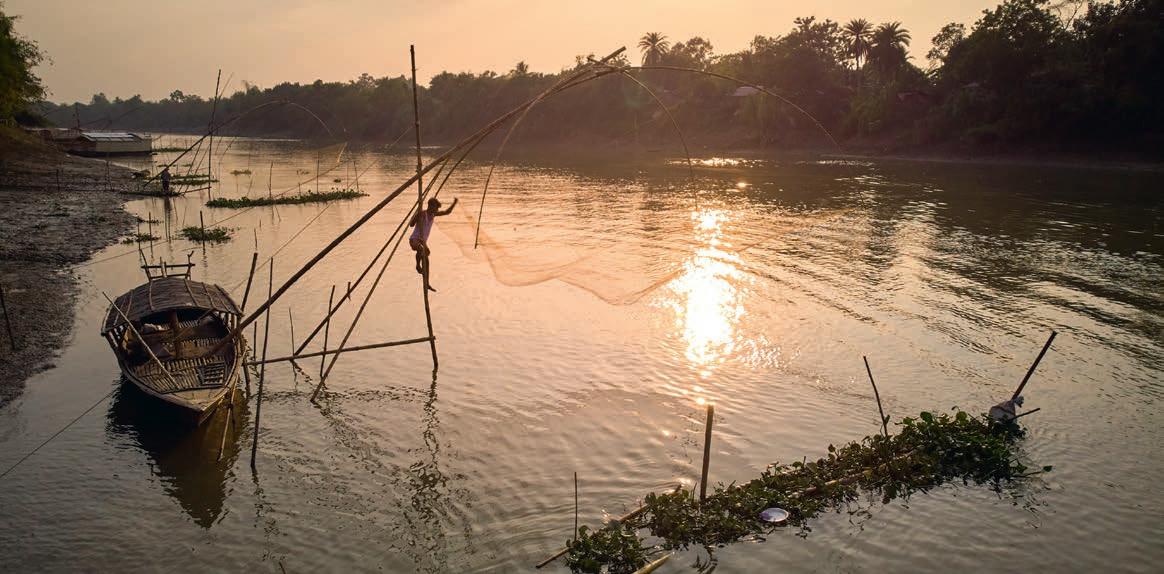
dropped back home at the end of the school day. It doesn’t matter if roads and paths get flooded. It’s also much safer for girls to be picked up and dropped off this way. We can get into difficulties if we have to walk long distances to school, because there are some boys and men who aren’t nice. Now my parents don’t have to worry that something might happen to me, and they can let me go to school.”
Wants to be a doctor


“Going to school is important. I want to be a doctor, so there’s lots to learn. It just wouldn’t be possible if I didn’t go to school. I want to open a brand new hospital here in the village, where everyone can get help. My hospital won’t be expensive, it will be completely free. My teacher at boat school saved me, which means it’s possible for my dream to come true. I love her for that!” c
Computers for the future
“We have computer studies at school every day. We learn to write and draw on the computer. Everyone needs to have these skills for future study or work,” says Rakhiya, who gets help from her computer teacher Jahidul.

The computer runs on electricity generated by solar panels fitted to the roof of the school boat. The classroom’s lights and fans are also powered this way.


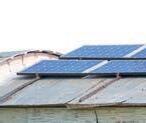


62
Rakhiya’s big brother is out fishing, but he doesn’t catch much for Rakhiya to deal with today.
Helping out
“I help mum with cooking and cleaning. I can cook rice, fried potatoes and tasty omelettes! We don’t own any land, but when mum works in other people’s fields and isn’t at home, it’s me who does the cooking. My big brother Bijoy goes to high school, but he helps with the fishing too. I love fish! But sometimes he doesn’t catch anything. Then we just have rice and vegetables,” says Rakhiya.

Rakhiya’s climate list



“We learn a lot about climate change at boat school,” says Rakhiya, showing her climate list:


What happens:
• Higher temperatures.
• Droughts.
• Glaciers and ice melt.
• More rain, at unusual times and lasting longer.
• More flooding, at unusual times and lasting longer.

Causes:
• Pollution from cars, planes and factories.
• Deforestation.
• Because we don’t recycle rubbish properly.
says Rakhiya.

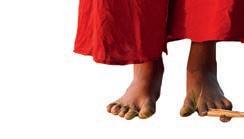


Rakhiya, mum Saleha and big brother Bijoy outside the house that the family built when their old house was destroyed by flooding. Dad, Abul, works at a banana plantation a long way from the village, and their eldest brother, Rakibul, works at a textile factory in the capital Dhaka.

That’s it for today!
“We have school for three hours a day, and I really like being here. At school I meet all my friends and I love it! My favourite subject is Bangla.”


63
“It’s really bad! We need to start looking after our planet if we’re going to survive,”
Jibon’s home disappeared



“You need to wake up! The whole house is flooded, we have to go NOW!” shouted Jibon’s mum as she tried to shake him into life. Like so many other landless people, Jibon’s family lived in a simple mud building close to the river, which is the cheapest place to live.




‘‘It was late in the evening, and everyone had gone to bed when mum suddenly woke us up. Floodwater was rushing into the house. When I stood up, the water came right up to my waist. I was so afraid. Perhaps mostly of all the snakes that are in the water everywhere
when there’s a flood. Being bitten by a snake can be fatal.”
Panic
“I panicked and couldn’t stop crying, so mum lifted me up and ran. When we got to a little hill, we watched as the whole house went under the water and was swept away by the river. Mum and dad man-
Class against child marriage
“Both the teachers and the students at the boat schools campaign against child marriage, because girls suffer and are forced to quit school. It’s wrong and unfair. There was this one time we managed to stop a marriage for a girl who was only 14. The whole class of 30 students went along with our teacher to the girl’s family and explained to the parents that child marriage is wrong. In the end they decided to cancel the wedding, and it felt really good! I will never marry anyone who is under the age of 18,” says Jibon.
64
Jibon feeds the cows that survived the flood.
c TEXT: ANDREAS LÖNN PHOTOS: JOHAN BJERKE
Jibon’s family outside the new house that dad built; dad, Gulzar, older brother, Jony, Jibon and mum, Ranjana.
“I play cricket with my friends every day after school. I support Bangladesh of course, but unfortunately our neighbouring country India usually does better in the matches. And I hate that!” says Jibon, laughing.


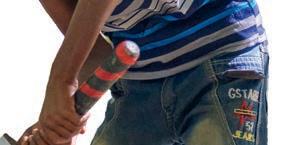
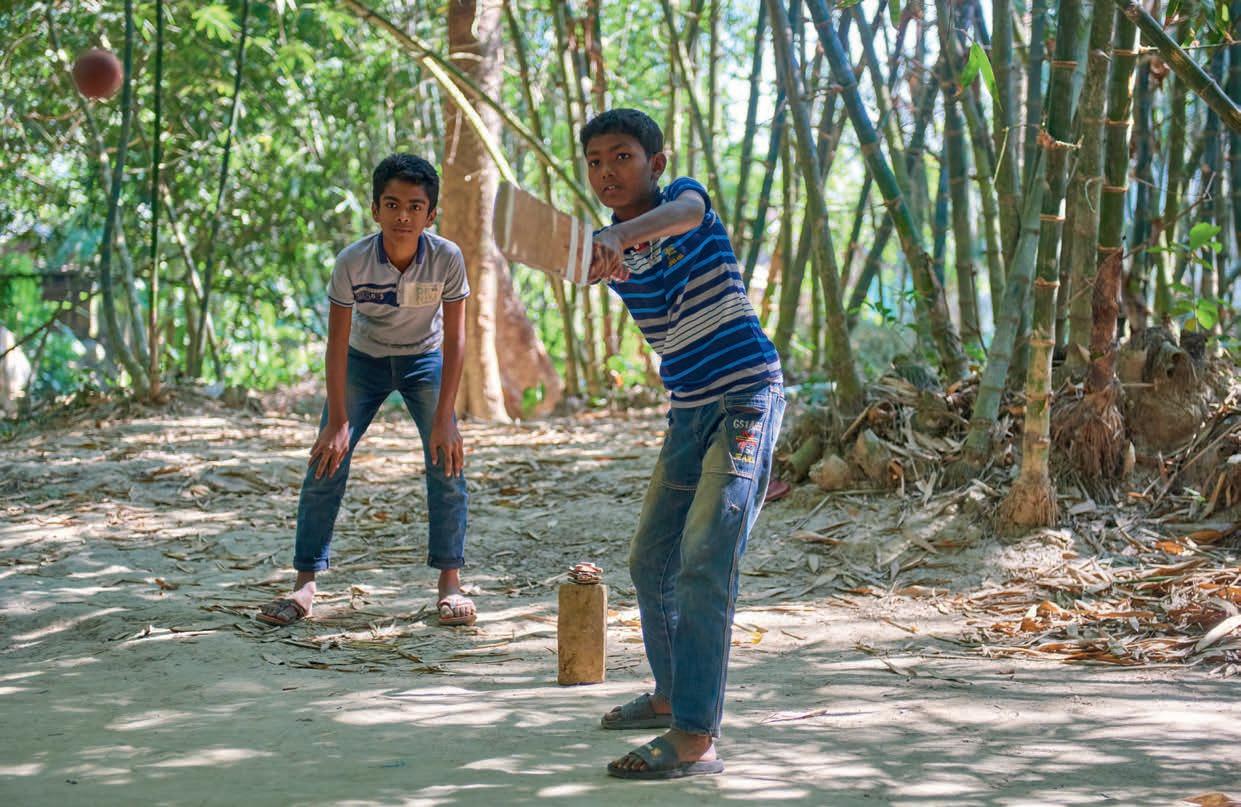
aged to bring some money with them, but most of what little we owned disappeared. Two of our cows were dragged under the surface and drowned in the floodwater.
“We are landless, so we don’t have any land of our own. And the small strip of land we rented to grow grass for our cows was covered in water and destroyed. But we were lucky that the whole family survived. Because that night we thought we were going to die.”

Boat school helps


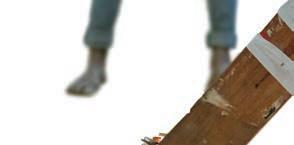
“After a few months with grandma and grandpa, dad had finished building the house we live in now. I like my new house. It’s higher up and further from the river, so I’m not so afraid that it will happen again. But I still have nightmares and sometimes I wake up sweating in the middle of the night.
“We’ve had to move three times in five years because of flooding. Every time it happens, we lose almost everything we own. We are often hungry. We only had dried rice to eat after the latest flooding. I asked mum for some fish with the rice, but she said we couldn’t afford it. We had nothing.
“It’s great for us that I get to go to boat school, as we’ve lost so much in the floods. Because everything’s free at boat school. The teaching, the notebooks, pens...everything! I’m in fifth grade now, and in the future I dream of becoming an engineer and building large bridges and buildings.”
Jibon, 11




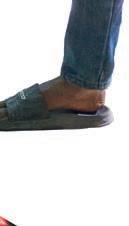


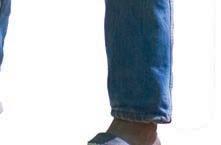
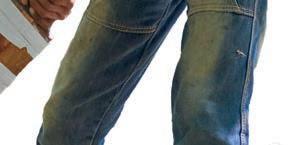

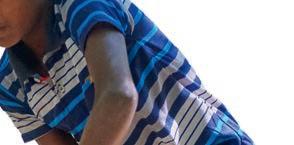





65
Loves cricket
Independent
“I’m doing this course to learn to sew, because I want to be a seamstress and have my own shop in the future. Once I’ve learned a profession I’ll be able to look after myself, earn my own money and be independent. After all, my parents can’t give me money forever!”
Safe on the boat
Sabina loved going to boat school when she was younger. But she’s 17 now, and there’s no high school on the boats, so she goes to another school. But for three weeks she’s back on the river at one of Rezwan’s floating training schools for women.

‘‘I love being here. I meet friends and have fun. Nupur, who has been my best friend since junior boat school, is also doing this course. In fact we do everything together! It makes us braver and stronger, and gives us the chance to move about more freely. Like getting to high school in town. Otherwise it can be difficult for girls to do that in Bangladesh. It’s not safe for a girl to be out alone in town or in other places. Men and boys shout out horrible things, insults. You can even get kidnapped, abducted and subjected to an assault like rape.”
Marriage must be a choice
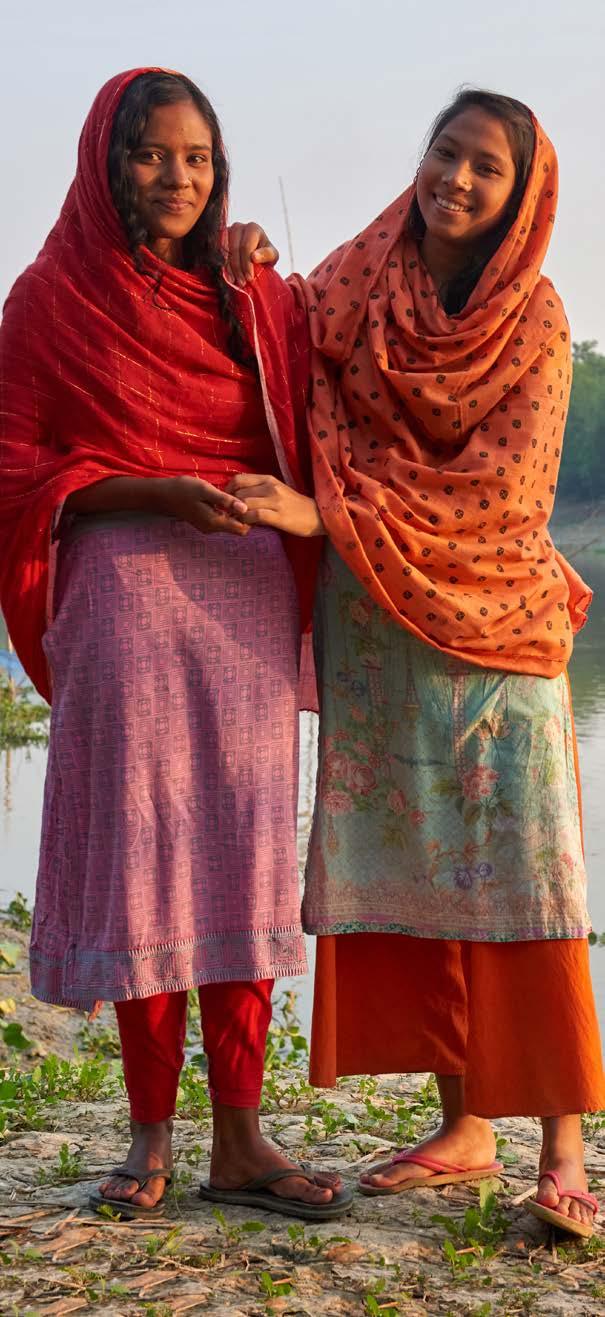
“I really wish a lot of things were different in my country. For example, child marriage
needs to stop. Marriage should be a choice for everyone. And women and girls should be able to go anywhere and have the right to an education. We have to be able to express our opinions in the family, in the village and in society, and our opinions should be respected. I believe the whole of society would be better if girls’ rights were respected. Boat school and the floating training school are safe places for girls. It feels great to be here! The rest of society should be like the boat schools. Then all women and girls would be safe and secure.” c
66
Best friends Sabina (on the right) and Nupur.
MONIRA, 12


GOOD AT: Sewing and embroidery.


FAVOURITE SUBJECT: BGS (Bangladesh & global studies), because I like learning about the world.


DREAMS FOR THE FUTURE: To be a doctor.
JIM, 10
GOOD AT: Studying and playing.
FAVOURITE SUBJECT: Natural science, where I learn about water and air pollution.
DREAMS FOR THE FUTURE: To become a teacher.
Dreams on Rezwan’s boat school

SAMAD, 12




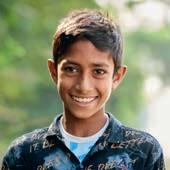
GOOD AT: Fishing.
FAVOURITE SUBJECT: Bangla and listening to stories like ‘The Elephant and the Fox’.
DREAMS FOR THE FUTURE: To be a policeman.
OMOR, 10

















GOOD AT: Football! Messi is my idol.
FAVOURITE SUBJECT: BGS (Bangladesh & global studies), because we look at maps and learn about the world.
DREAMS FOR THE FUTURE: To be an engineer and build roads here in the village.
SIGMA, 13
GOOD AT: Various games.
FAVOURITE SUBJECT: Natural science, where I learn about animals, plants and the environment.
DREAMS FOR THE FUTURE: To be a doctor and help people living in poverty.


RASEL, 11













GOOD AT: Playing football. My favourite team is Argentina!
FAVOURITE SUBJECT: Natural science.
DREAMS FOR THE FUTURE: To own a large clothing factory.






SHIMLA, 15


GOOD AT: Cooking, particularly fish.
FAVOURITE SUBJECT: Bangla.
DREAMS FOR THE FUTURE: To be a doctor.
RATUL, 12
GOOD AT: Studying and doing my homework.
FAVOURITE SUBJECT: BGS (Bangladesh & global studies), where I learn about climate change.





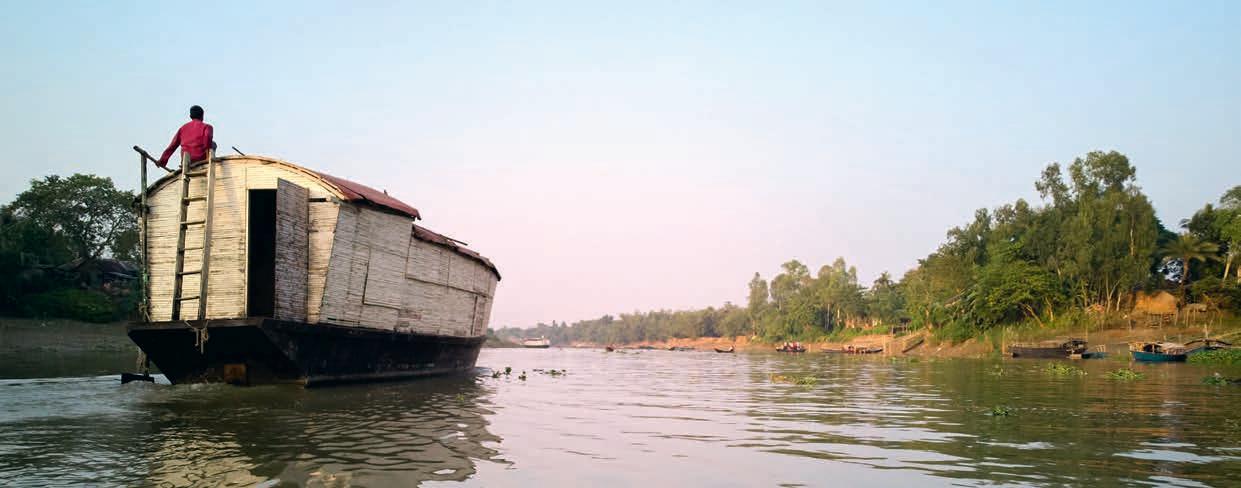
DREAMS FOR THE FUTURE: To be a policeman.
KEYA, 13
GOOD AT: Dancing.
RIMA, 11
GOOD AT: Going to the best school in the world!
FAVOURITE SUBJECT: Bangla.
DREAMS FOR THE FUTURE: To become a doctor and treat everyone in the village for free.

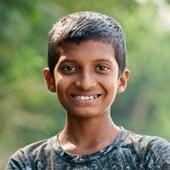
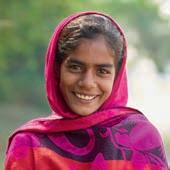


FAVOURITE SUBJECT: Natural science, because we learn a lot about environmental issues.
DREAMS FOR THE FUTURE: To be like our teacher; she’s so good and I really like her!
67
c TEXT: ANDREAS LÖNN PHOTOS: JOHAN BJERKE
















































































































































































































































































































